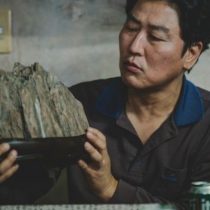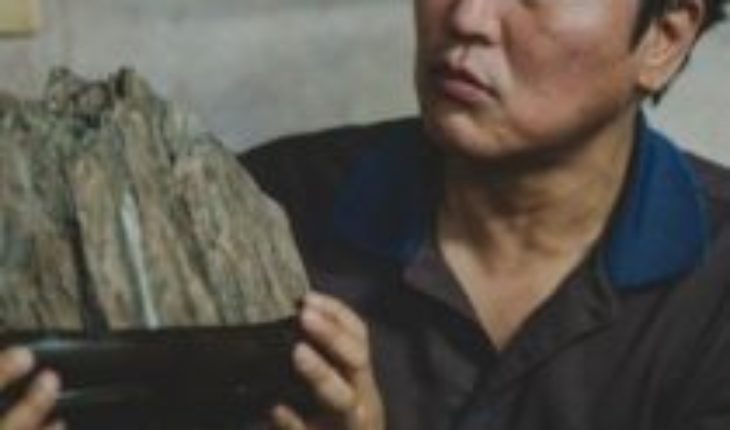
The Rock
The stone that Min gives to his friend Ki-woo and which serves as a symbolic trigger for the story is what is known as “suseok” (literally “waterstone”), a type of decorative rock – that of the film is of the variety that simulates a mountainous landscape – that comes from the tradició n And that because of its stratospheric prices is often associated with the wealthiest.
Driver’s buffets
Another detail that affects the issue of precariousness: Ki-taek takes his whole family to eat at a “kisa sikdang” or “restaurant for drivers”, tremendously affordable buffets designed for taxi drivers, drivers or bus drivers (some in fact do not farmers from outside the guild).
The Taiwanese cake
The Park recalls that Ki-taek opened a “castella” shop (Japanese biscuit of Portuguese origin), for many the epitome of business failure in South Korea, where the Taiwanese version of this dessert became fashionable in the middle of the last decade and propelled many in looking for “quick money” to open furnaces that then went bankrupt (something that is later discovered to also happen to Geun-se’s character, the man hidden in the bunker).
Jessica’s song
The tonadilla ki-jung sings to remember the details of his false identity is the melody of “Dokdo nun uri ttang” (“Dokdo is our land”), a song about the islets whose sovereignty is contested by South Korea and Japan and which most South Koreans are engraved on fire because of its huge popularity.
The use (and abuse) of English
Parkes live obsessed with English, which refers to the so-called “miguk byeong”, the obstinacy of considering the American or Anglophone to be synonymous with status, a phenomenon that finds its maximum expression in “The care”, the company that The Kims invent themselves so that the mother is hired as a housekeeper (countless South Korean businesses use the determinant “The” to denote exclusivity).
Mixed noodles
The dish that Park Yeon-kyo commissions to prepare Kim Chung-sook gave the authors of the subtitles headaches: the Jjapaguri, which is named after it, is the mixture of two types of instant noodles (Jjapagetti and Neoguri), a cheap and popular dish that excites rich and poor but to which director Bong Joon-ho adds a wink: the Park family eats him with a very expensive sirloin.
The firstborn
Little Park Da-song is the right-eyed of his father and mother, who systematically ignore his eldest daughter Da-hye, a detail that underscores the devotion still shown by many families for first-born males in very patriarchal South Korea and the discrimination that women suffer from the moment they are born.
The underground bunker
Upon discovering the bunker at the Park residence, the first housekeeper explains that many “rich houses” in the country have them “in the event of a North Korean invasion or to outwit creditors,” reminiscent of the fierce battle of many South Koreans to maintain their train of life : household debt in the Asian country exceeds $1.3 trillion (1.18 trillion euros) and is one of the highest in the OECD.





